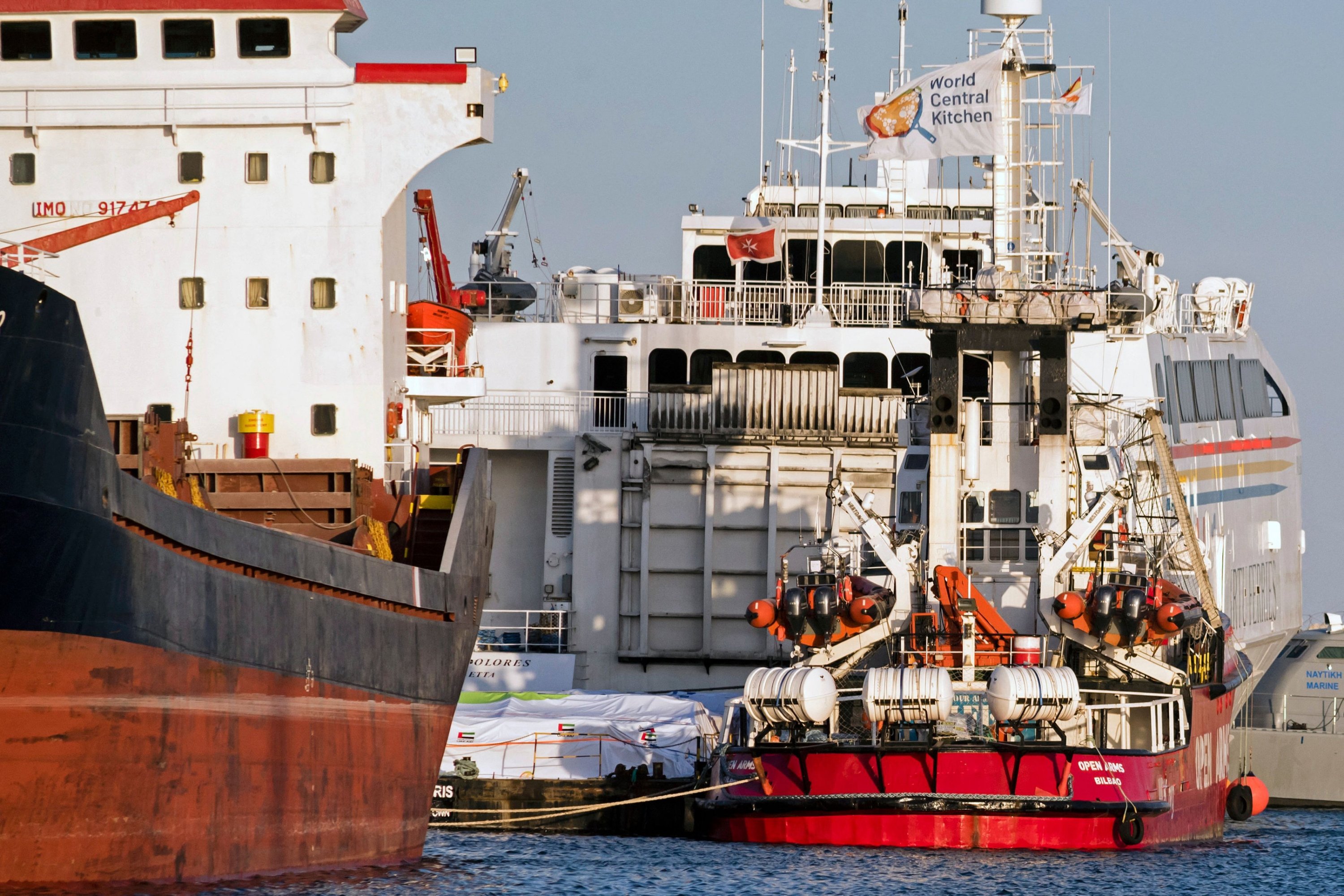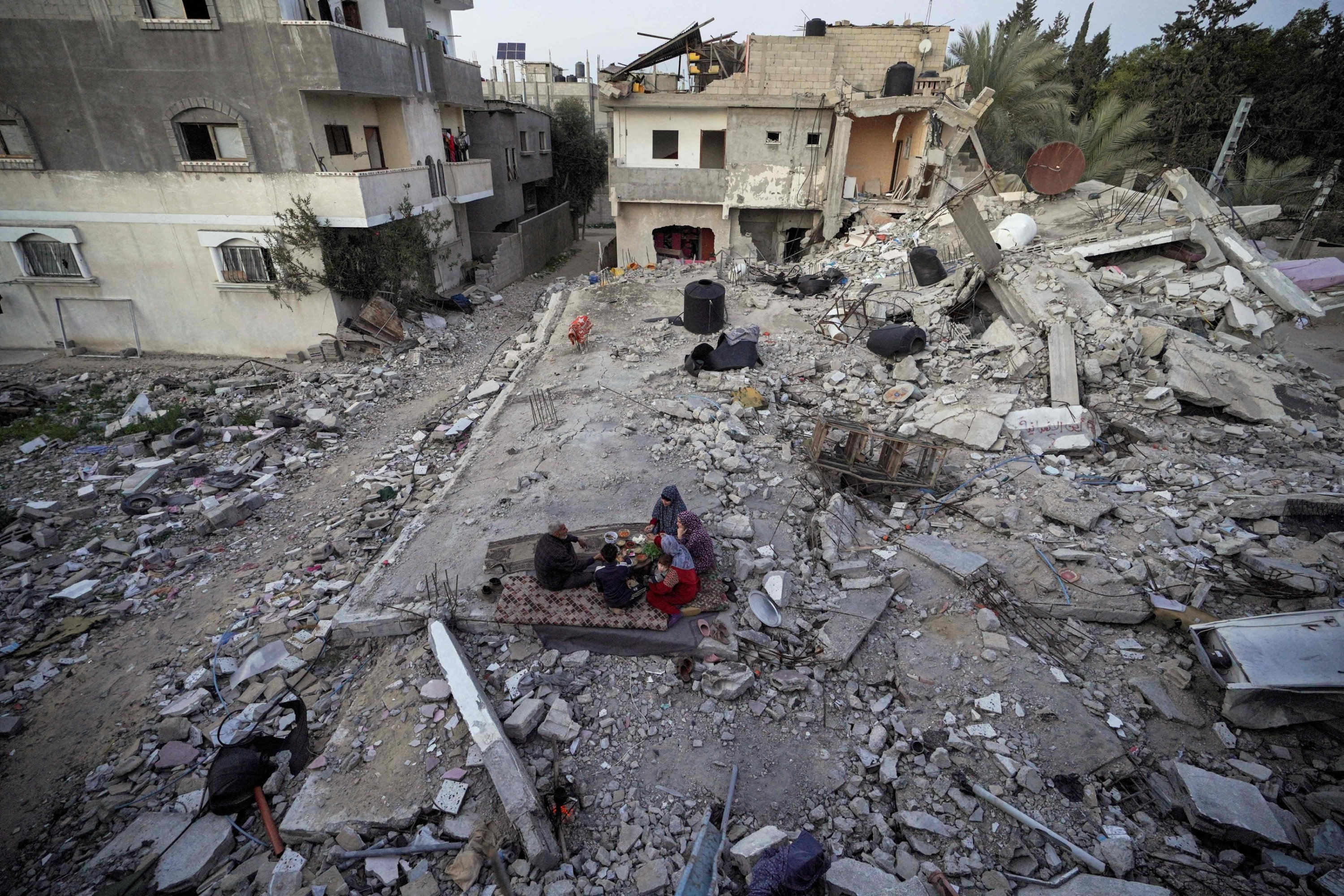© Turkuvaz Haberleşme ve Yayıncılık 2024
The first aid ship, carrying nearly 200 tons of food, set sail for Gaza Tuesday as part of an effort to open a sea corridor to the besieged territory.
The pilot program comes as Israel's five-month-old war has driven hundreds of thousands of Palestinians to the brink of famine.
The food was gathered by World Central Kitchen, the charity founded by celebrity chef Jose Andres, and is being transported by the Spanish aid group Open Arms.
The ship departed from the Eastern Mediterranean island of Cyprus and is expected to arrive in Gaza in two to three days.
The U.S. has separately announced plans to construct a sea bridge near Gaza in order to deliver aid, but it will likely be several weeks before it is operational.
On the one hand, the Joe Biden administration provides military aid to Israel, on the other, it urges Tel Aviv to facilitate more humanitarian access.
The planned sea route has the support of the European Union, the United States, the United Arab Emirates and other countries. The U.S. and other countries have also launched airdrops of aid in recent days, but such efforts are costly and unlikely to meet the mounting needs.
The Open Arms ship is towing a barge loaded with food. Once it nears Gaza, two smaller vessels will tow the barge to a jetty being built by World Central Kitchen, which operates 65 kitchens across the territory. It plans to distribute the food in the north.
Organizers said the jetty will be outside of northern Gaza but declined to provide further details. Andres told The Associated Press in a brief interview Saturday evening that they want to keep the location secret to prevent large crowds from disrupting the delivery.

"The best security is to have enough food in Gaza," he said. "We want to make sure nothing happens to anybody."
Israel opened fire and killed over 100 Palestinians during a botched aid delivery attempt last week.
Meanwhile, the Gazan Health Ministry confirmed Tuesday that the Palestinian death toll from malnutrition and dehydration in Gaza climbed to 27.
Israel, which controls Gaza's coastline and all but one of its land crossings, says it supports efforts to deliver aid by sea and will inspect all cargo before it sets sail for Gaza.
European Commission President Ursula von der Leyen said it was the first time a ship had been authorized to deliver aid directly to Gaza since 2005 and that the European Union would work with "smaller ships” until the U.S. completes work on its floating port.

The war, triggered by the Oct. 7 Hamas incursion on Israel, has killed over 31,000 Palestinians and driven most of Gaza's 2.3 million people from their homes. A quarter of Gaza's population is starving, according to the United Nations, because they cannot find enough food or afford it at vastly inflated prices.
The U.S., Qatar and Egypt had tried to broker a cease-fire and hostage release ahead of the Islamic holy month of Ramadan, which began Sunday. But the talks stalled last week after Israel and Hamas dismissed each other's demands.
Israeli Prime Minister Benjamin Netanyahu, in the meanwhile, has vowed to expand the offensive into the southern city of Rafah, where half of Gaza's population has sought refuge, and to keep fighting until Hamas has been completely dismantled and all the captives it is holding have been returned.
The war threatens to spill over across the Middle East as Iran-backed groups allied with Hamas trade fire with U.S. and Israeli forces. At least one person was killed in an Israeli attack on southern Lebanon on Tuesday after around 100 projectiles were launched into Israel from Lebanon earlier Monday, one of the biggest barrages since the start of the war in Gaza.
There were no immediate reports of injuries or damage from the attack, which appeared to be in response to Israeli airstrikes deep inside Lebanon a day before. Israel and Lebanon's Hezbollah militant group have traded fire nearly every day since the war began.
Aid groups say it is nearly impossible to deliver aid in much of Gaza because of systematic Israeli restrictions, ongoing clashes and the breakdown of law and order in Gaza.
Israel claims it places no limits on the entry of humanitarian aid through the two functioning land crossings in the south. However, U.N. agencies and humanitarian groups say they cannot always distribute aid once it enters because of security and logistics issues. They have called on Israel to open more crossings.
Conditions are especially dire in northern Gaza, which has suffered widespread devastation and been largely cut off by Israeli forces since October. Up to 300,000 Palestinians are believed to have remained there despite Israeli evacuation orders, with many reduced to eating animal feed in recent weeks.
On Monday, the first day of the normally festive month of Ramadan, children with pots lined up at a charity kitchen in the urban Jabalia refugee camp. Each was given a small portion of cooked carrots and sweet potatoes to break the dawn-to-dusk fast.
"Our children can't find anything to eat," said Bassam al-Haw, a volunteer. "No food, no water, no flour."
